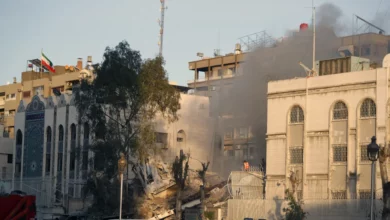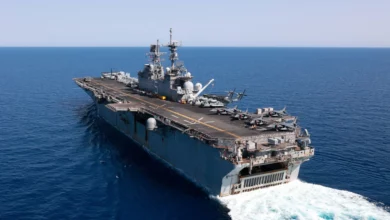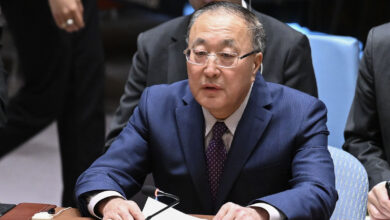At least 55 countries will demand on Monday that the UN Security Council refer the Syria conflict to the International Criminal Court for a war crimes investigation.
The demand will be made in a letter organized by Switzerland, which has spent seven months collecting signatories. The 15-member Security Council is the only body that can refer the case to the ICC.
Swiss UN mission spokesperson Adrian Sollberger told AFP the letter would be handed over Monday.
Other diplomatic sources said 55 countries had signed and others could still join even though the initiative has little immediate chance of success.
The Security Council is in a crippling deadlock over the 22-month old Syria conflict. Permanent members Russia and China have vetoed three resolutions which would have threatened sanctions against Syria's President Bashar al-Assad.
As neither are members of The Hague-based court, both countries would almost certainly reject any new resolution proposing war crimes charges. Syria is also not a member.
European countries have provided the majority of the signatories, according to diplomatic sources.
The United States has not signed the letter because it is not an ICC member, but does support the initiative, diplomats said.
"Our proposal is supported throughout Europe and also in most other regions of the world," Switzerland's Foreign Minister Didier Burkhalter told SRF Swiss broadcaster on Friday. "We can get this operation moving now," he added.
"There are horrific war crimes happening in Syria," Burkhalter said. "People must realize that these crimes will not go unpunished."
Russia opposed
Russia has been the main opponent of international action on the conflict, which the UN estimates has now left more than 60,000 dead.
The Russian government reaffirmed Sunday that it opposes any move to force Assad from power as part of any deal to get talks started on a political settlement.
Assad's ouster would be "impossible to implement," Russian Foreign Minister Sergei Lavrov was quoted as saying by Russian media.
"This is a precondition that is not contained in the Geneva communiqué [agreed by world powers in June] and which is impossible to implement because it does not depend on anyone," news agencies quoted Lavrov as saying.
Lavrov conceded that a defiant speech Assad delivered on 6 January calling for peace in Syria on his own terms probably did not go far enough and would not appease the armed opposition.
But he also urged Assad's enemies to come out with a counterproposal that could get serious peace talks started between the two sides for the first time.
"President Assad has forwarded initiatives aimed at inviting all in the opposition to dialogue. Yes, this initiative probably does not go far enough," said Lavrov.
"They will probably not look serious to some. But these are offers. And if I were in the opposition's place, I would present my counter-ideas about establishing dialogue."
Russia on Saturday reiterated its support for a transition plan that was agreed in Geneva on 30 June but never implemented because of the fighting.
The accord is now being heavily promoted by Lakhdar Brahimi, the UN-Arab League envoy for the 21-month crisis in Syria.
The Geneva deal calls for power to be handed to an interim government but offers no clear guidance about Assad's future role.
But Moscow is deeply worried that Brahimi is getting ready to back a firmer version of the Geneva pact that specifically precludes the possibility of Assad or his closest advisers serving on the transition team.
Russia argues that only the Syrian people themselves can oust Assad through either elections or some form of negotiated settlement.
It also accuses Washington of using its armed forces more freely to depose unfriendly regimes—a practice that Russia says breaches international law.
Western powers and Arab states—as well as the armed opposition—counter that the Geneva plan promoted by Brahimi can only work if Assad steps down.
Russia's firm stance comes despite a series of recent assurances by President Vladimir Putin that Moscow was not interested in propping up Assad.
Putin even noted in his annual press conference last month that he understood Syrians' impatience for change after more than 40 years of rule by the Assad family.
But Lavrov — unparalleled access to the regime — argued that a broader international call on Assad to step down would have no effect on the Syrian leader and would only incite further unrest.
"If you make the Syrian president's ouster the main precondition, then—and I have said this before—the price for this approach is new fatalities," said Lavrov.
"And those who support such an approach must bear the responsibility for it."
"In the face of spiraling carnage, Russia and China have shamefully paralyzed the Security Council for far too long," said Richard Dicker, an international justice expert for Human Rights Watch.
He said the Swiss petition "an unprecedented act of 'justice diplomacy.'”
"A court investigation would strip all sides to the conflict of their sense of impunity, signaling that abuses could land them in a cell in The Hague," Dicker said.
This article was edited from several combined AFP stories.




